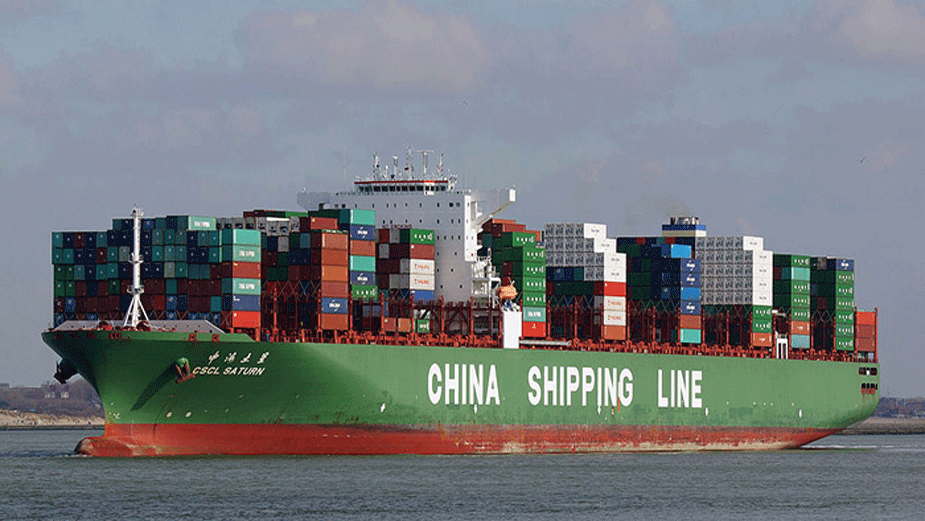Guest Commentary: China’s Control of Ports Threatens Supply Chains
By Carl D. Rafoth
YOUNGSTOWN, Ohio — While our attention is focused now on the COVID-19 pandemic, it will fade as all others have.
Outsourcing of not only products of less critical importance but those of immediate importance creates a potential threat to the availability of the latter. To assist in identifying the threat, recognizing its significance, and confronting it requires a multilevel approach.
Begin with logistics.
If critical things such as pharmaceutical components are developed and made not only under the watchful eye of our regulatory authorities but are logistically continuously available, an unfriendly regime can arbitrarily withhold them by closing or restricting ports of entry where they are needed.
By controlling ports of entry an unfriendly regime can and has “weaponized” the supply chain. Not only in the implied sense, but it also has the potential for overtly doing so.
China’s giant COSCO Shipping Corp. Ltd. has pushed into the European Union and Latin America by acquiring the rights to operate and develop ports and terminals for as long as 40 years including Piraeus, the largest seaport in Greece, and the second largest in the Mediterranean.
Cosco bought controlling or significant positions in Spain and Italy.
Huawe Marine Networks Co. LTD has begun a globe-encirculing undersea cable network onshore to Marseille, France to create a major maritime data hub. This undersea cable powers China’s physical port network.
Access to Chinese controlled ports serve as the critical link between manufacturers in China and markets around the world.
Closer to home, consider this: Although somewhat complicated it appears a French privately owned company has made an alliance with a Swiss based company to help COSCO and a Chinese shipping alliance to push into services on routes around the world.
Even closer to home, in 2019 the French company acquired a Swiss freight company that runs the largest freight network in the U.S. (think MAERSK seen on many truck trailers here). The Swiss company is 90% owned by an entity that is financed by Chinese state banks and whose principal ally is the logistics arm of the Chinese navy.
Historically, if you control the seas, you control the world – or much of it.
Ever wonder why South Americans speak the Spanish language? Think of Spain’s dominance of the seas. Perez conquered Peru in about 1535, Cortez took Mexico, and both sailed from Spain. Similarly, English is the second most common of the twenty-some languages spoken in India because of British control of that country more recently, but prior to the usefulness of the airplane.
Although the British military did not prevail in the American Revolution, their “Britishspeak” lingers on, mostly pronounced their way in our Eastern states
Both Spain and England projected their military power with sea-going vessels. The Spanish conquistadors were primarily interested in Inca Indian treasurers of gold and presumably the British sailors to India were looking for treasurers of the same, including precious gems and spices as well as commerce.
The Chinese government also recognizes the importance of sea power. It devotes the majority of its finances outward – extending its reach primarily into sea port control of terminals around the world, and ostensibly only for commercial trade purposes; however, they also have a dual potential with navel presence as well.
Let’s look at what China has accomplished with port control only in the last few years
Sea shipping is by far the most economical and useful method of transportation. A large container ship carries capacities of multiple trains, hundreds of trucks and many more of one plane load.
Most of planet earth is water, much of it navigable with abundant seaports; the most active is in Rotterdam, Holland. Our most active is in California and we use large ones along the East Coast and Gulf. Seaports provide the most important supply chain for critical and quantities of essentials such as pharmaceuticals and medical supplies including survival equipment.
In recent years China has “weaponized” their supply chain. First, and as indicated above, its state-owned port and shipping companies own and operate seaports and container terminals around the world to control a base network that the Spanish and British obtained only through military victory – again via sea power projection to conquer.
The “sun never set” on the British Empire because of their port control in most every time zone. Potential Chinese hegemony over much of the world should not go unnoticed. It prevents not only supply chain issues but military implications as well.
We must therefore return critical component and completion of pharmaceuticals and medical equipment manufacturing to our shores.
Many multinational pharmaceutical and biomedical companies have settled into China where transparency and accountability as well as shared ownership with the Chinese government (actual or virtual) is always problematic. First, it was the “Fresh Market” responsible for the new virus, now it is widely “believed” to have originated from a Chinese bio-lab. We probably will never know just how, but why trust the Chinese to manufacture critical health care components?
We have friendly allies such as the U.K., Ireland and Japan that are much more reliable than China to rely upon for our critical supply chain. Israel should be included also.
To assure and secure reliable supply chains we must maintain not only a large maritime fleet but also naval ships, especially aircraft carriers. The maritime fleet for cargo and the carriers for guarantying access to friendly seaports under our or friendly control is required.
China is adding more to its commercial fleet annually than the entire American inventory.
Also, in 2019 China began the process of converting commercial ships for military usage while underway. If China takes the seaports, the rest of the Belt and Road – East to West – will follow.
Editor’s Note: The author, Carl D. Rafoth, is an attorney with Friedman & Rummell Co. L.P.A., based in Canfield.
Published by The Business Journal, Youngstown, Ohio.



